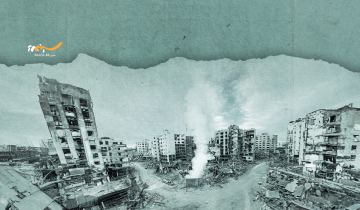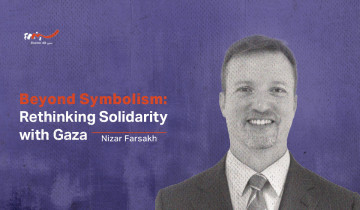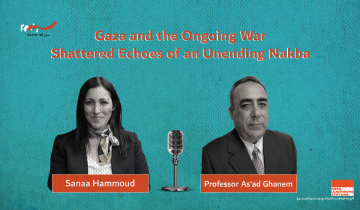Daring to Imagine Peace: A Palestinian Case for Two States/One Homeland
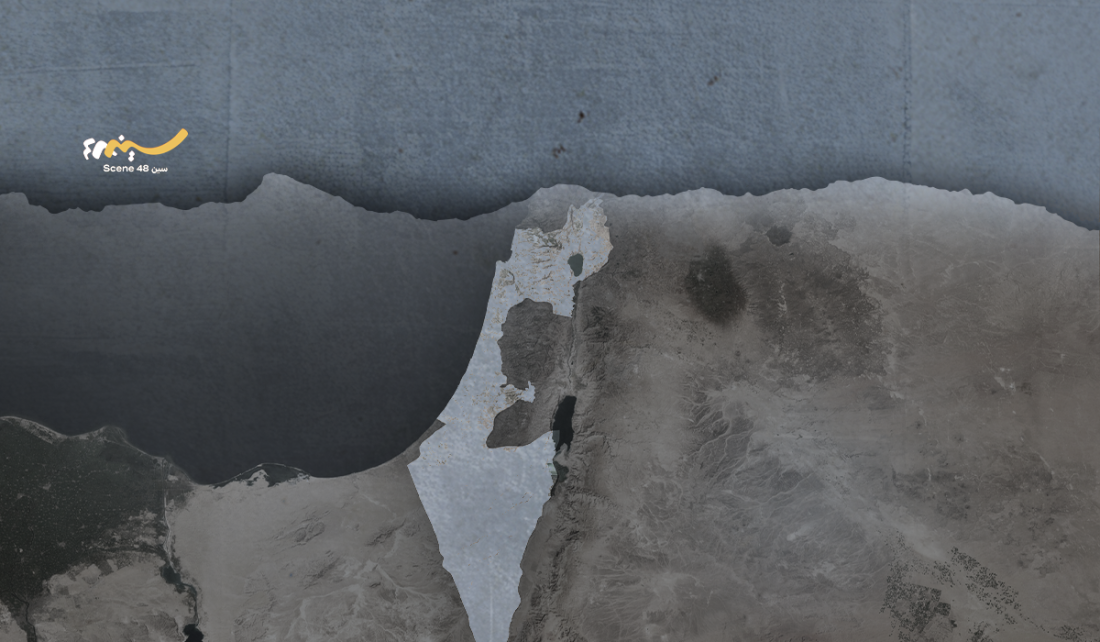
At this moment of profound devastation in Palestine, with Gaza in ruins and our people facing daily brutality, peace can feel more remote than ever. Israel’s relentless onslaught, the deepening entrenchment of apartheid, and the erosion of basic human dignity leave many of us consumed with the need to survive, resist, and mourn. To speak of visions for the future may seem naive—or worse, a distraction from the immediate work of ending genocide. And yet, it is precisely in times like these that we must also imagine what comes after. Resistance must not only be reactive—it must also be generative. While we fight to end oppression, we must also give ourselves permission to dream, plan, and build toward a just future. Without that, our struggle risks becoming an exercise in nostalgia or perpetual crisis management rather than a path to liberation. We owe it to ourselves, to succeeding generations, and to all the people we have lost to define what peace looks like and work toward it.
That is the mission of A Land for All/Two States, One Homeland (ALFA)—a joint Palestinian-Israeli movement whose board I co-chair. ALFA embraces a model for peace in Palestine-Israel that is rooted in equality, justice, and self-determination. As our name suggests, our vision is a kind of two-state solution—but not one based on ethnic segregation or Jewish domination. We envision a sovereign Palestinian state alongside Israel with borders based on the 1967 line. We recognize, however, that the way to make this a reality, following the changes on the ground over the last half century, is not by changing wherethe border will be, but by reimagining what kind of border it will be. We advocate gradual steps towards achieving freedom of movement and, eventually, freedom of residence for all Palestinians and Israelis across our common homeland. Such an approach offers solutions to the issues that posed the greatest obstacles to a negotiated settlement in the past—settlements, refugees, and Jerusalem. It also honors the fact that the full length and breadth of the land is cherished by both Palestinians and Jews. In addition, we advocate the creation of a two-state confederation with joint institutions that facilitate partnership in addressing common interests and threats, including a transnational human rights court that can help protect the rights of all.
For Palestinians, this vision responds directly and concretely to our three core requirements for peace. First, it ends the occupation. The Israeli military would withdraw fully from the West Bank and Gaza, allowing the State of Palestine to exercise sovereignty and secure the freedom of its citizens. Second, it guarantees equality for Palestinian citizens of Israel whose rights would be strengthened by a combination of treaty and constitutional commitments. Third, it creates a viable path for the return of Palestinian refugees. They would then have the right to reside in any part of the land, including—as permanent residents—in what is now Israel. Whereas the right of return has often been dismissed as a symbolic gesture or an obstacle to peace, it is a cornerstone of our vision, as is the development of a transitional justice process through which compensation and accountability can be pursued. In other words, A Land for All does not ask Palestinians to compromise on our most fundamental rights. It is a strategy for realizing them in a way that is both principled and possible.
Of course, for such a future to materialize, it must also address the needs of Israeli Jews. That is not a concession—it is a strategic and moral necessity. Any sustainable solution must be rooted in reciprocity and recognition. Israeli Jews, many of whom carry deep generational trauma and fear of annihilation, need to know they too can realize self-determination in security and dignity. Our vision secures that, not through Israeli Jewish supremacy or hegemony, but through partnership built on mutual guarantees. The very fact that our movement is co-led, that Palestinians and Israeli Jews sit together as equals to shape a shared political vision, is what gives it strength. We are not operating in separate silos or adversarial camps; we are building together, with full knowledge of our asymmetries and wounds. That kind of partnership is not always easy, but it is essential.
In that sense, A Land for All embodies what feminist theorists like Carol Gilligan have called an “ethic of care”—a politics rooted not in abstract ideals of justice, but in relationship, mutual recognition, and responsibility. Ours is a feminist vision, not because it centers women explicitly (though our two co-directors are both women), but because it insists on interdependence as a political principle. It does not deny power—but seeks to transform it. Just as feminist movements have long argued that care is not weakness but strength, A Land for All insists that justice and partnership are not contradictory. They are both prerequisites for peace. And real peace—not merely the absence of violence but the presence of dignity—is worth fighting for with all of our might.
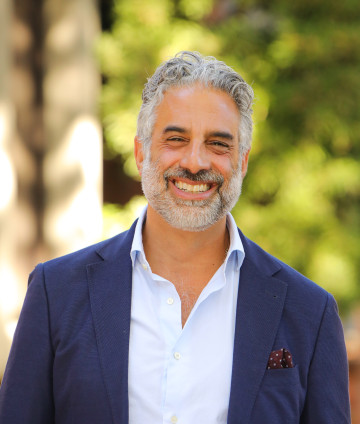
Omar M. Dajani
Carol Olson Professor of International Law at McGeorge School of Law, University of the Pacific. Previously, he served as legal adviser to the PLO in peace talks with Israel. He currently co-chairs the joint board of A Land for All/Two States-One Homeland.
